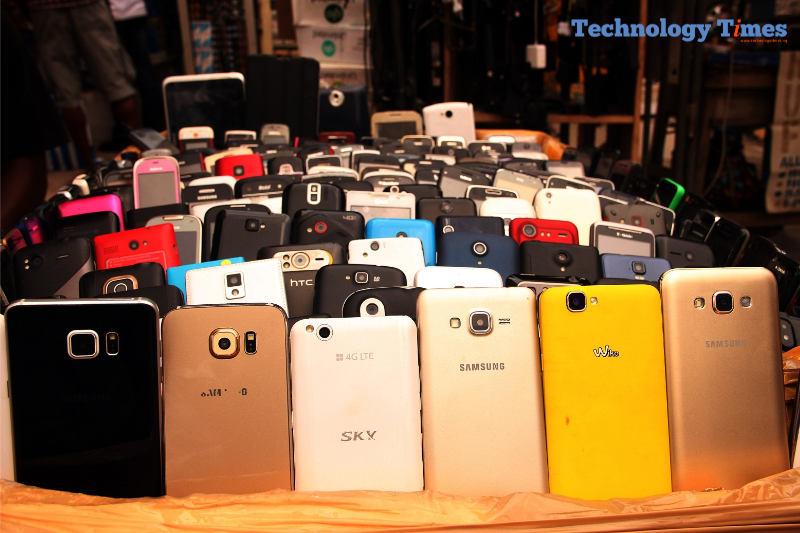Nigeria’s plan to reach 70 per cent broadband penetration by 2025 is on track as the nation will cross the 50 per cent mark by the end of 2023, according to the telecoms regulator.
Prof. Umar Danbatta, Nigerian Communications Commission (NCC) Executive Chairman said in Kano that the national target to achieve 70 per cent broadband penetration by 2025 is receiving renewed attention from the government agency responsible for regulating the telecoms industry.
Fifth Generation (5G) services subscriptions, the NCC chief says, have already hit half a million in subscription while efforts to improve broadband penetration are yielding fruitful results with the current estimates as at July 2023 standing at 47.01 per cent.

Danbatta says that active telephone subscribers increased from about 150.7 million to 218.9 million, representing a teledensity growth of 115.70 per cent from 107.87 per cent in 2015.
Through stimulating broadband infrastructure across the country, broadband penetration, which stood at 6 per cent in 2015 has increased significantly to 47.01 per cent as of July, 2023, enhancing over 89.73 million subscriptions on 3G, 4G and 5G networks in the country. Additionally, general Internet subscriptions have reached 159.5 million up from less than 100 million in 2015.
“These initiatives also include Licensing of Satellite Earth Stations, issuing of operating licence to SpaceX Satellite, facilitating the landing of additional submarine Cables, such as the Google 2,000km Equiano subsea Internet cable in 2022, listing of MTN on the Nigerian bourse, licensing of Mobile Virtual Network Operators (MVNOs), introduction of new unlicensed millimeter wave spectrum, and regulation of white space spectrum,” Danbata said.
“Also, from 8 per cent contribution to the Gross Domestic Product (GDP) in 2015, telecommunications sector now contributes 16 per cent quarterly to the Nigerian economy as of the second quarter of 2023.”
Following the authorization of more telecommunications companies to operate in Nigeria’s telecoms sector, the investments profile has increased from $38 billion in 2015 to $75 billion currently and this keeps growing daily, Danbatta says noting that the sales of Fifth Generation (5G) C-Band Spectrum has generated over $847.8 million for the Federal Government.”
The NCC chief says that “other milestones and initiatives recorded aside the regulatory activities that culminated in the landmark launch of 5G services in Nigeria include the introduction of Spectrum Trading Guidelines, re-farming and re-planning certain spectrum band for efficiency, the emplaced collaborative process for the release of C-Band Spectrum by Nigerian Communications Satellite (NIGCOMSAT) Limited, and introduction of the Expanded Revenue Assurance Solution (ERAS) to address revenue leakages and improve government revenue from the telecoms industry.
“These initiatives also include Licensing of Satellite Earth Stations, issuing of operating licence to SpaceX Satellite, facilitating the landing of additional submarine Cables, such as the Google 2,000km Equiano subsea Internet cable in 2022, listing of MTN on the Nigerian bourse, licensing of Mobile Virtual Network Operators (MVNOs), introduction of new unlicensed millimeter wave spectrum, and regulation of white space spectrum,” Danbata said.
NCC says it has endowed professorial chairs in Nigerian universities and committed over N500 million naira to Research and Development (R&D) in the telecoms sector. “The creation of the Digital Economy Department, the mandate to drive the implementation of the indigenous telecoms sector growth through the operation of the Nigeria Office for Developing Indigenous Telecom Sector (NODITS), are also important strides made by the Commission.”
The consumer-focused initiatives of the Commission have also centered on the establishment of Emergency Communications Centres (ECCs) in over 30 States of the Federation and the Federal Capital Territory (FCT). All these centres are operational, as well as the creation of the Computer Security Incident Response Team (CSIRT). The EVC said these two initiatives have been helping consumers to get succour in times of emergencies as well as ensuring effective protection for telecom consumers while online.
NCC, Danbatta says, has also taken very clear actions on consumer protection, advocacy, information-sharing and education. “These include introduction of data roll-over just before the expiration of subscribed data plans, introduction of the 622 toll-free number for lodging service-related complaints to the Commission, the Do-Not-Disturb (DND) 2442 Short Code for tackling the menace of unsolicited text messages, elimination of forceful/deceitful subscriptions to telecom services on mobile networks, tackling the issue of call masking, ensuring effective Subscriber Identity Module (SIM) registration, launching of National Roaming service and reduction of access gaps to telecom services from over 217 to 97, thereby enhancing access to telecom services by more Nigerians.”
However, Danbatta said while the industry still faces a number of challenges such as vandalism, securing equitable Right of Way (RoW) from governmental stakeholders, as well as multiple taxation and regulation, the Commission has put framework in place to work with necessary stakeholders to overcome the obstacles posed by these challenges and to sustain the growth trajectory which has been the hallmark of telecoms sector as an enabler of socio-economic development in Nigeria.
Source of Article

